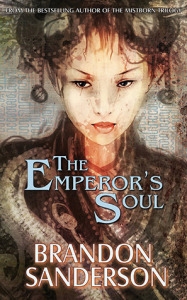Few things push my happy button faster than reading a story in an Asian inspired setting, especially when it’s done well. Conversely, there are few things that can earn my wrath faster than a misrepresentation of everything my ancestors lived. Let’s start with an example of the good.
The Emperor’s Soul by Brandon Sanderson is beautiful story. If you haven’t read it than you need to put it at the top of your reading list. It’s about a forger that has to forge a new soul for the emperor in order to evade execution.
One of the central ideas in The Emperor’s Soul is that anything less than perfection is unacceptable. In the protagonist’s line of work, it’s a necessity. However that very same trait is one that is considered a fault in western cultures but prized in eastern cultures.
Another necessity of the protagonist’s profession is that in order to forge it, she has to know every aspect of it — everything that made it what it is today. It’s an ideal that Sun Tzu talks about in The Art of War. Popularly the concept is referred to as “know your enemy.” I don’t know if Brandon borrowed the notion from Sun Tzu. I do know that he does a fantastic job showing the varied nuances and complications such a study brings.
On the other end of the spectrum is a manuscript that will not be named. A friend asked me to read it and I never made it past the first chapter. In fact it took all of my willpower not to throw my laptop across the room. This story made the same mistake that I’ve seen in a lot of movies. They grab hold of the cool elements — Samurai swords, martial arts, ninjas, etc — and throw the rest out the window.
The problem with that is the history, philosophy, sociology, and traditions are so intertwined and influential on the cool elements that you can’t separate the two and do it justice. A Samurai sword is nothing more than an overgrown letter opener without the training, and dedication of Kendo. The man wielding the sword is nothing more than an armed criminal without the code of Bushido.
(Note: This particular manuscript is not the best example of the anonymous author’s work. That’s why I’m not revealing the book’s name or theirs.)
Is it hard to understand a culture that is not your own? It can be. Though I feel the end result makes it worth the effort. For me, it’s not just about getting the details right to show the inspiring society the respect it deserves. We’re in a time when the industry is very aware that we need fiction with more diversity; and we truly do. But what we need more than that is well executed diverse fiction that helps the reader understand the world we live in and cultivates respect.


Superb details permanently, you just received some sort of logo brand-new Empire Share audience. Exactly what can you propose in regards to your current offered you made a day or two before? Every convinced?